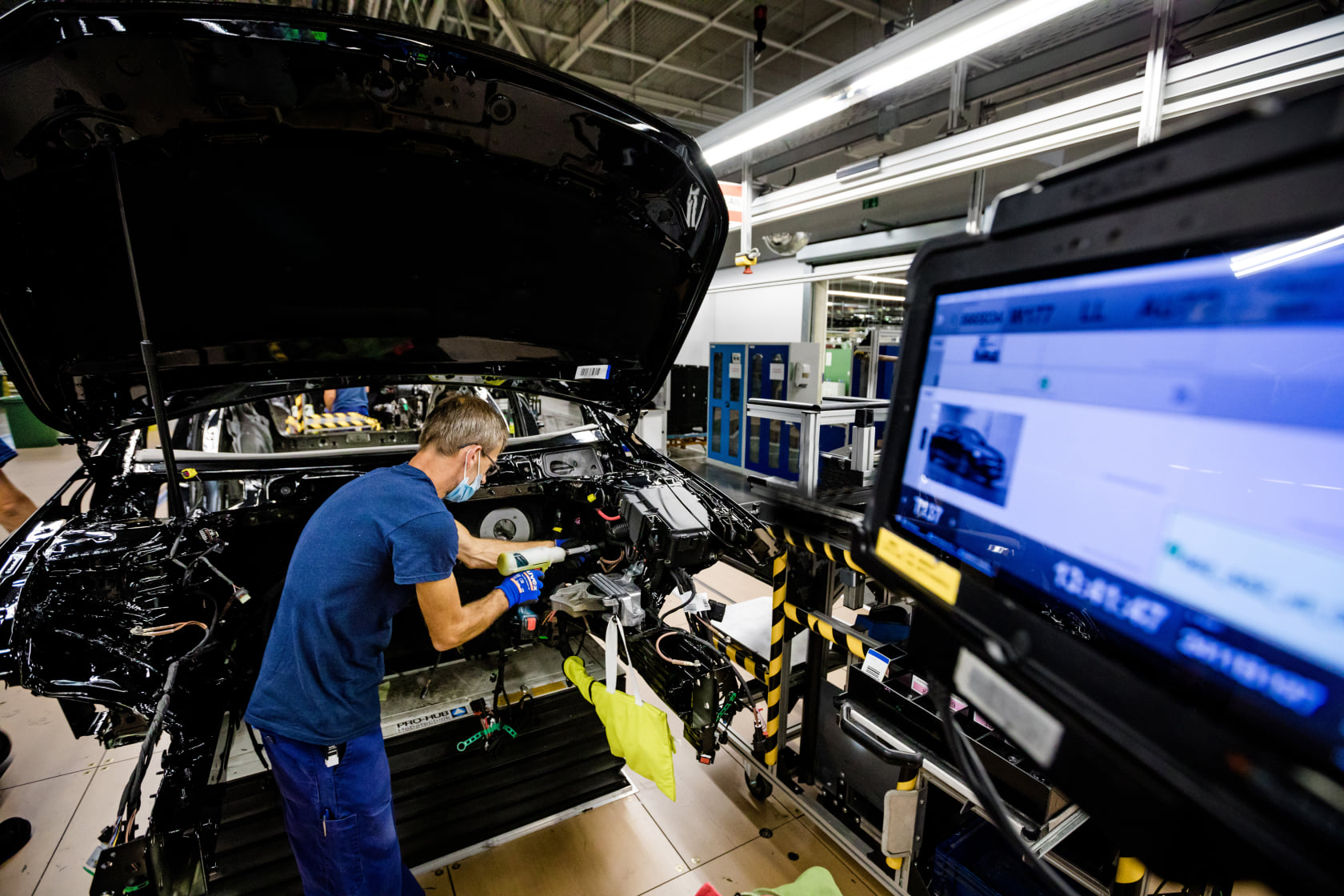The government still has a major task ahead of it to restore economic growth, says the Economic Development Minister.Continue reading

The government continues to regard German companies operating in Hungary as strategic partners, the Deputy State Secretary for Macroeconomic and European Affairs stressed at an event organized by the German-Hungarian Chamber of Industry and Commerce in Budapest on Tuesday.
Gábor Szőcs stressed that German companies have a decisive weight in the Hungarian economy. “In the past decade, German companies have repeatedly proven that they can be counted on even in difficult times,” he said, adding that “the government continues to regard German businesses and Germany as a key strategic partner and is committed to tax reductions and the reduction of administrative burdens.”
He stated that the technical recession is over, and growth returned in mid-November, adding that the Hungarian work-based model is crisis-proof, the labor market is stable, and the government has successfully brought inflation below 10 percent. “Several international organizations and credit rating agencies are optimistic about the Hungarian economy, citing the Hungarian banking system as a strong basis for growth and the high investment rate, which is the highest in the EU,” he noted.
Szőcs pointed out that
Germany was Hungary’s most important trading partner last year, with a trade volume of EUR 67.7 billion, accounting for 23 percent of total Hungarian foreign trade.”
Furthermore, the country also remains the most important partner in terms of investment, with foreign direct investment (FDI) worth EUR 18.2 billion in 2021, accounting for 20 percent of total Hungarian FDI. With the support of the Hungarian Investment Promotion Agency (HIPA), 187 German investment projects worth EUR 9.5 billion have already been approved between 2014 and the first half of 2023, creating more than 30,000 new jobs, he said, adding that the aim is to further encourage investment.
Dirk Wölfer, head of communications at the German-Hungarian Chamber of Industry and Commerce, presented the results of the chamber’s latest autumn business survey that polled more than 200 companies, and showed that the generally weak economic situation is having a negative impact on the business climate of German companies in Hungary. Across the region, companies’ economic expectations are negative, and firms operating in Germany are even more pessimistic than their counterparts in Germany, he stressed.
He also pointed out that half of the firms operating in Hungary expect the general economic situation to deteriorate further, and only 12 percent expect an improvement.
The overwhelming majority of companies operating in Hungary consider their own business situation to be good or at least satisfactory (42 and 47 percent respectively), while only one in ten considers it to be bad.”
However, their own business expectations have weakened significantly: only 18 percent of respondents expect business to improve, while 34 percent expect business to deteriorate. “The balance of positive and negative responses (17 percentage points) was previously this low during the financial crisis in 2009,” he said. He added that for the first time in ten years, more companies are planning to reduce their investment spending (37 percent) than to increase it (25 percent). Based on the latest data, German companies invest EUR 2-3 billion a year in Hungary, with a turnover of EUR 55 billion.
Via MTI, Featured image: Facebook/Mercedes-Benz Gyár Kecskemét